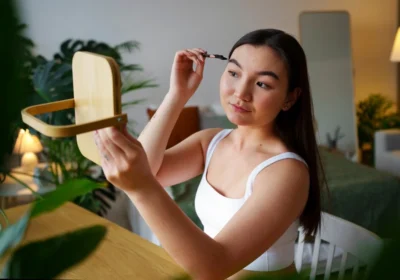
Shades of Protection: The Crucial Role of Sunglasses in Shielding Your Eyes from Harmful UV Rays – Dr. Zuhal Butuner
As the sun graces us with its warm embrace, we often remember to slather on sunscreen to shield our skin from harmful ultraviolet (UV) rays. Yet, we sometimes overlook the importance of protecting our eyes from the sun’s radiant beams. Sunglasses, more than just a fashion statement, play a pivotal role in safeguarding your eyes and preserving your long-term eye health. In this article, we’ll explore the significance of sunglasses in defending your eyes against UV damage. Here is what Dr. Zuhal Butuner says.
Understanding UV Radiation
Ultraviolet radiation is a form of electromagnetic energy emitted by the sun. It is divided into three categories:
1. UVA (Ultraviolet-A): These rays are responsible for premature skin aging and can penetrate deep into the skin. UVA rays also play a role in certain eye conditions, including cataracts.
2. UVB (Ultraviolet-B): UVB rays primarily affect the outer layers of the skin, leading to sunburn and an increased risk of skin cancer. These rays can also harm the eyes, causing conditions like photokeratitis (a painful corneal sunburn) and contributing to cataract development.
3. UVC (Ultraviolet-C): UVC rays are the most dangerous, but fortunately, they are absorbed by the Earth’s atmosphere and do not reach us.
The Importance of Sunglasses for Eye Health
1. UV Protection: High-quality sunglasses are designed to block out harmful UVA and UVB rays. Wearing sunglasses significantly reduces your exposure to these damaging rays.
2. Preventing Cataracts: Prolonged UV exposure is a known risk factor for cataracts, a clouding of the eye’s natural lens. By wearing sunglasses, you can decrease your risk of developing cataracts later in life.
3. Minimizing Photokeratitis: Photokeratitis, also known as “snow blindness,” is a painful condition caused by UVB overexposure. Proper sunglasses provide essential protection against this eye ailment.
4. Preventing Macular Degeneration: UV rays may contribute to the development of age-related macular degeneration (AMD), a leading cause of vision loss in older adults. Sunglasses can help reduce this risk.
5. Comfort and Visibility: Sunglasses reduce glare, making outdoor activities more enjoyable and safer. This improved visibility can help prevent accidents, especially while driving.
Choosing the Right Sunglasses
1. UV Protection: Ensure that your sunglasses offer 100% UV protection. Look for labels that specify “UV400” or “100% UV protection.”
2. Polarized Lenses: Polarized lenses reduce glare and enhance visual clarity, making them an excellent choice for various outdoor activities.
3. Size and Coverage: Opt for sunglasses that provide adequate coverage to shield your eyes from all angles. Wraparound styles are particularly effective.
4. Fit and Comfort: Choose sunglasses that fit well and feel comfortable during extended wear. Adjustable nose pads and temple tips can enhance comfort.
5. Lens Color: Lens color is a matter of personal preference, but certain tints can enhance specific activities. For example, gray lenses provide natural color perception, while brown or amber lenses enhance contrast for sports like golf.
Your eyes are precious, and protecting them from the harmful effects of UV radiation is essential for long-term eye health. Sunglasses are more than just a stylish accessory; they are your first line of defense against UV rays. By investing in high-quality sunglasses and making them a part of your daily routine, you not only shield your eyes from harm but also ensure a brighter, clearer, and healthier vision for years to come. So, don’t forget to slip on those shades and embrace the sunny days with confidence in your eye protection.


















